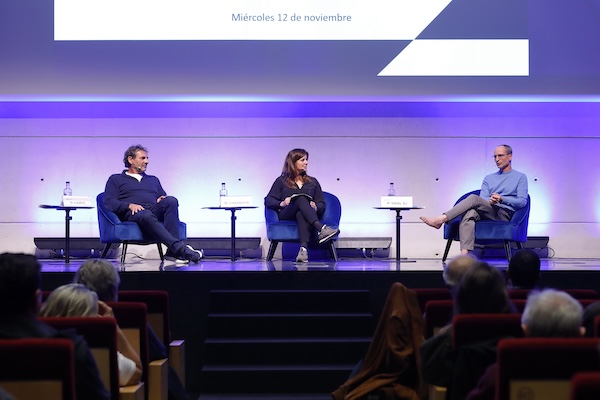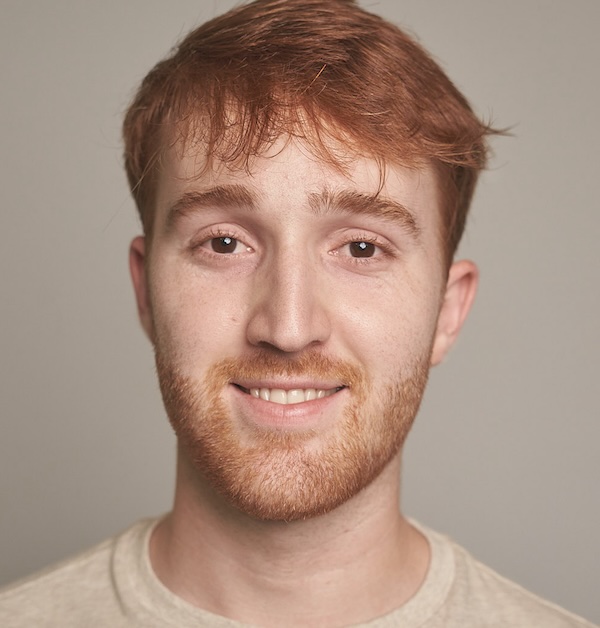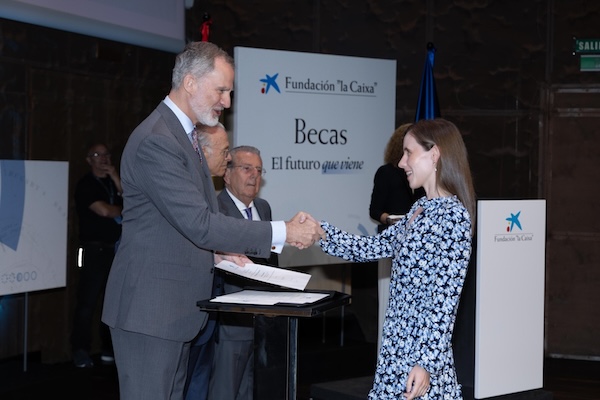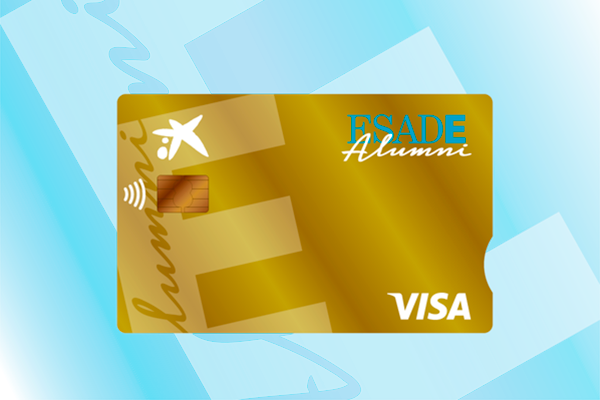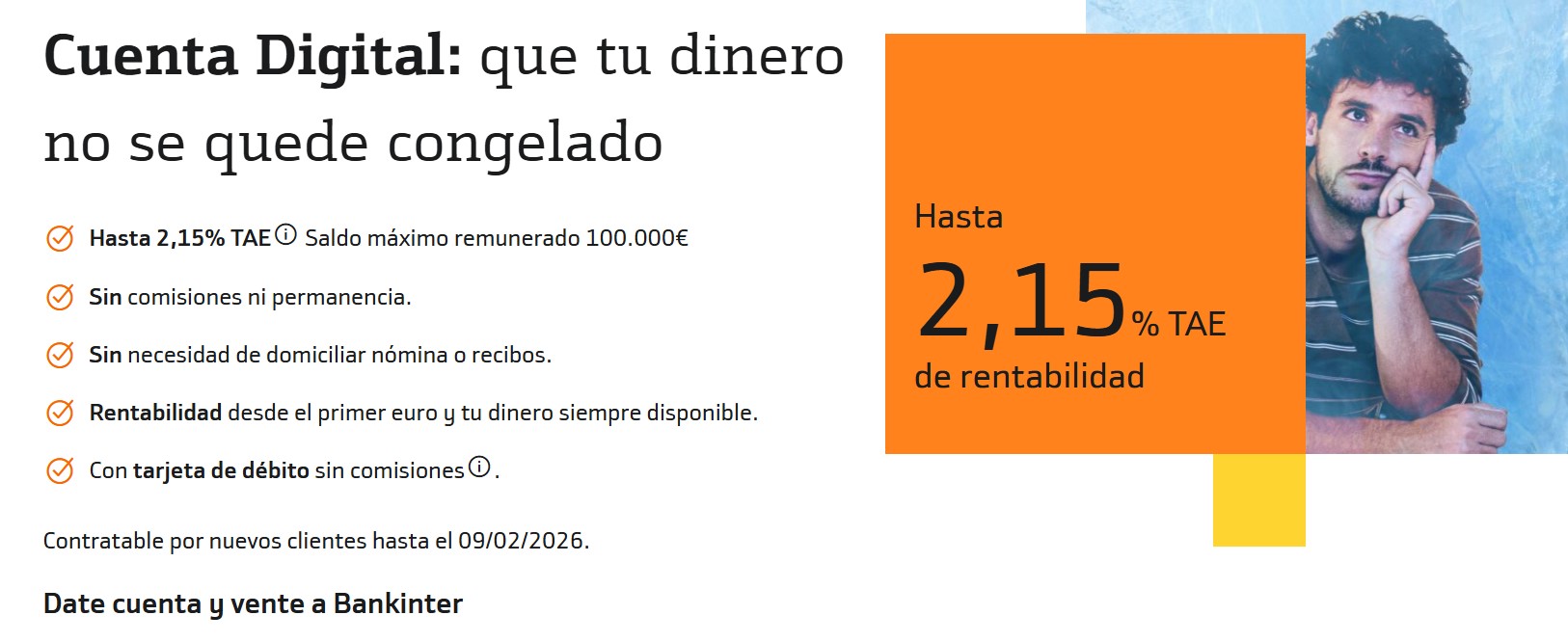This lawyer specialised in IT law and cybersecurity earned a bachelor’s degree and two master’s degrees at Esade with an added challenge: he is blind
With more than 20 years of professional experience in various organisations, Javier Albouy is a lawyer with great technical capacity in IT and cybersecurity law as well as extensive commercial skills. He studied at Esade, earning a bachelor’s degree and two master’s degrees. But his career has been characterised by additional hurdles and hard work, as he is a person with blindness. We spoke with him about his life experiences and the lessons he has learned along the way.
- At what point did you decide you wanted to study law at university?
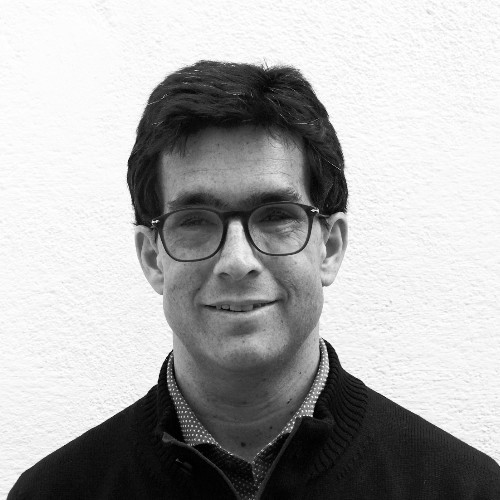 I made this decision at the age of 18 when, having lost my vision due to a cancer in the area of the optic nerves that required radiation therapy, I realised that I could not study for a degree in business administration or industrial engineering, which were subjects that I liked very much. In addition, my parents advised me on the advantages of studying law for my professional future.
I made this decision at the age of 18 when, having lost my vision due to a cancer in the area of the optic nerves that required radiation therapy, I realised that I could not study for a degree in business administration or industrial engineering, which were subjects that I liked very much. In addition, my parents advised me on the advantages of studying law for my professional future.
- What challenges did you face while studying for a bachelor’s degree in law and then a master’s degree in law focused on information technologies?
For me, the main challenge was to study using methods other than writing on paper, as I had done since I was a child, and to learn very quickly how to use computers and communication technologies. It was also a challenge for me to explain to my professors how they could better adapt their lectures, during which they often used the blackboard – for example, in subjects such as accounting or finance as well as others in which the explanation relied heavily on diagrams or drawings.
- Why did you choose Esade and what does it mean to you? What does it mean to you to belong to a community like Esade Alumni?
I chose Esade because of its institutional prestige as a university and because I was convinced of the quality of the content and of the faculty. For me, Esade is a benchmark in my life. Being a part of Esade Alumni means staying connected to Esade and its alumni and opening up new opportunities for the future.
- What have technological innovations meant as support tools in your everyday life?
They have been a key element of my studies, my work, and also my private life and my free time. I admire the sensitivity of companies such as Apple, which has done so much to ensure the full accessibility of its technological products. For 14 years, I have been using an iPhone, which I have upgraded to successive versions over the years. I am able to use it without barriers, thanks to the VoiceOver software. For six years now, I have also been using an Apple Watch.
- Where does your ability to overcome obstacles come from?
Mainly, it comes from my deep Christian faith, from my infinite trust in God. I believe that it is a gift or talent that God has given me, and I have put it into action and developed it.
- What have been the highlights of your professional career so far? What kinds of projects do you most identify with?
Humbly, I think the highlight is the fact that I have a very versatile profile, and that I constantly try to strengthen my knowledge and competencies. I like to work on new projects that involve challenges. I would also mention my great ability to concentrate while working. I would like to work for a company that is sensitive and committed to diversity and inclusion in its organisation.
- What dreams do you have for the future? What would you like the next few years to be like, professionally speaking?
One of my dreams is that new technologies, applied in the field of medicine, will enable people like me to regain our visual ability. For example, in Germany, bionic glasses are being developed that enable visually impaired people to see in black and white again. Of course, I hope this will be extended to people with other types of physical or sensory disabilities, as well.
“One of my dreams is that new technologies, applied in the field of medicine, will enable people like me to regain our visual ability”
- Do you feel that companies are inclusive towards people with disabilities?
I think our culture is a far cry from that of the English-speaking countries, which have gone further towards internalising the notion that each person has different abilities. My professional experience over the last 24 years has shown me that, when you are blind, people label you and think that perhaps you don’t have the optimal capabilities to work to your full potential.
- How do you think we can make progress towards inclusion?
I believe the key is to organise workshops or training sessions on diversity and inclusion that involve indoor and outdoor activities. These sorts of activities allow us to eliminate the stereotypes or labels that people apply when they have to work in a team with someone who has a physical, sensory or mental disability. In July of last year, we organised a workshop of this sort at Esade.
- What advice would you give to other people with difficulties? How do you feel that your experience can inspire others?
When you join a new professional project or company, I would recommend that you spend a significant amount of time talking with the manager of your team or department as well as the rest of the team members, in order to gain an in-depth understanding of their capabilities and learn what IT and communication technologies they use to enhance their work performance. That way, you will gain the trust of your teammates and prevent them from applying labels to you.

 I made this decision at the age of 18 when, having lost my vision due to a cancer in the area of the optic nerves that required radiation therapy, I realised that I could not study for a degree in business administration or industrial engineering, which were subjects that I liked very much. In addition, my parents advised me on the advantages of studying law for my professional future.
I made this decision at the age of 18 when, having lost my vision due to a cancer in the area of the optic nerves that required radiation therapy, I realised that I could not study for a degree in business administration or industrial engineering, which were subjects that I liked very much. In addition, my parents advised me on the advantages of studying law for my professional future.